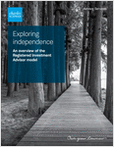What You Need to Know
- Hearing witnesses called on Congress to end the windfall elimination provision and government pension offset.
- The speakers said these policies can leave public service workers and their spouses vulnerable to poverty in advanced age.
- One bill to eliminate both provisions enjoys bipartisan support, but its path to passage remains murky.
A number of federal lawmakers, government worker union leaders and lifelong first responders called once again this week for the abolition of Social Security’s windfall elimination provision and the program’s government pension offset rules, arguing that these policies can leave public service workers and their spouses vulnerable to poverty in advanced age.
The witnesses made their case during a hearing hosted by Rep. Mike Carey, R-Ohio., at a St. George Fire Department facility in Baton Rouge, Louisiana. During the more than 90-minute discussion, Carey and a list of speakers that included the national president of the Fraternal Order of Police urged congressional action to swiftly eliminate both the windfall elimination provision and the government pension offset.
As Carey recalled in his opening remarks, the windfall and pension provisions were established decades ago to address flaws in Social Security’s benefits formula that could result in certain government workers receiving higher Social Security benefits as if they were longtime low-wage earners — despite having had substantial work earnings and being paid a pension benefit.
In the years since, however, stakeholders have raised a variety of issues with the ways the windfall elimination provision and government pension offset are calculated, communicated and ultimately applied — arguing that the provisions are flawed concepts that often treat public servants unfairly in practice. Much of the criticism pertains to the way the Social Security benefits of spouses of longtime government workers can be affected, especially in situations of widowhood.
“While intended to prevent overly generous benefits, these policies sometimes undercorrect, but more often they overcorrect benefits,” Carey said.
During the hearing, Carey and other witnesses praised the recent reintroduction of legislation that would do away with both provisions, and they called on Congress to enact the proposal without delay.
“Far too often, people are unaware that they are subject to the WEP and GPO until they or their spouse retire,” Carey warned. “Some people return to work and others have to adjust their spending habits or reevaluate their standard of living.”
What Is the WEP?
As explained by the hearing witnesses, the windfall elimination provision is a modified benefit formula that reduces the Social Security benefits of certain retired or disabled workers who are also entitled to pension benefits based on earnings from jobs that were not covered by Social Security — and thus not subject to the Social Security payroll tax.
Its purpose is to remove an unintended advantage that these workers sometimes receive as a result of the interaction between the regular Social Security benefit formula and the workers’ relatively short careers in Social Security-covered employment.
While participation in Social Security is compulsory for most workers, government data shows that about 6% of all workers in paid employment or self-employment are not covered by Social Security. As of December 2022, some 2 million people (or about 3% of all Social Security beneficiaries) were affected by the windfall elimination provision.
These workers mainly include state and local government employees covered by alternative staff-retirement systems as well as most permanent civilian federal employees hired before Jan. 1, 1984. This latter group is generally covered by the Civil Service Retirement System.
The government pension offset, for its part, applies if a person receives a government pension plus spousal or survivor benefits from Social Security. Depending on the circumstances, benefits can be reduced by up to two-thirds of the pension amount.












 Copyright © 2024 ALM Global, LLC. All Rights Reserved.
Copyright © 2024 ALM Global, LLC. All Rights Reserved.